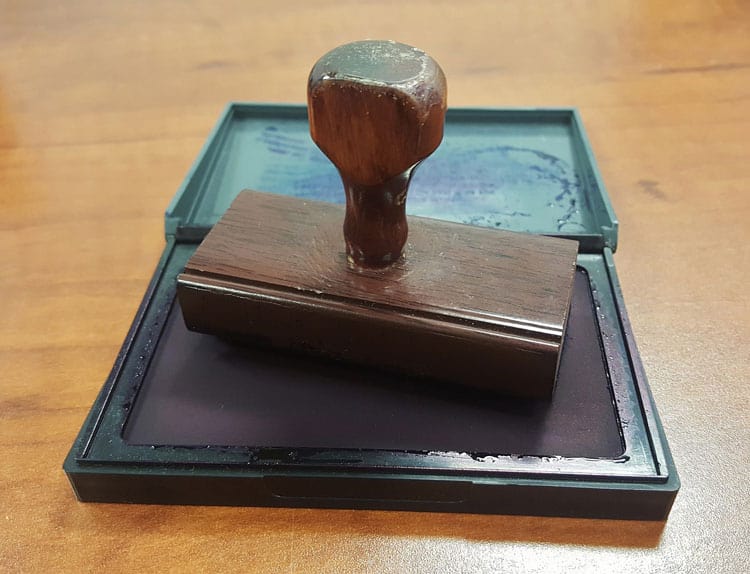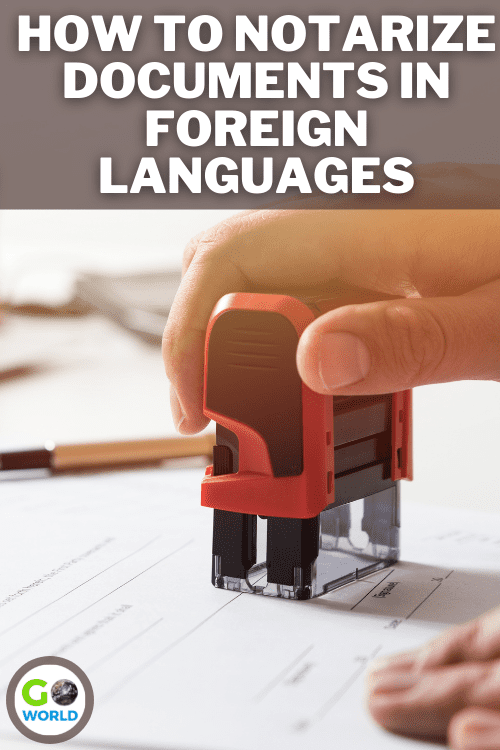
Go World Travel is reader-supported and may earn a commission from purchases made through links in this piece.
Are you setting sail or catching a plane soon and need to get your documents in order? Most people find themselves grappling with last-minute rushes like notarizing copies of their travel documents (e.g., passports).
We look into how you can notarize these and more legal documents written in foreign languages.

What is Notarization?
Notarization is an essential process that delves into the authenticity of a legal document. For notarization to occur, the notary must confirm that the signer is not under duress and understands the contents of the legal document.
It reduces the chances of fraud and protects citizens from identity thieves and exploiters who take advantage of the vulnerable. Notarial acts include jurats, acknowledgments, and certified copies, e.g., passports and college degrees.
Notarize Documents in Foreign Languages
For notarization to take place, the signer must acknowledge that they understand what they are signing. The notary must also ensure that the signature and name on the legal document match the signor’s details.
Of course, this can be tricky when there is a language barrier. So, what happens in such a case?

Looking Up the State Notary Laws
Above all else, the state notary laws determine how such notarization should take place. These laws are accessible on state websites or state handbooks. Some states require that the certificate is in English.
Others expressly state that the notary must communicate with the signer in English and present them with an English certificate. On the other hand, others require that the foreign language document be translated into English to ensure that both parties understand each other.
More importantly, the certificate should bear letters or characters that the notary can read, write, and understand. Only then can the notarization take place and hold up in a court of law.

Option 1: Translating the Documents
If you live in a state where foreign document translation must precede the notarization, you should get it translated now. You cannot rely on machine translations for legal documents. Not only do they make costly errors, but they don’t give you certified copies and can thus not hold up for legal purposes.
Instead, to ensure that you do not suffer delays or get turned back due to poor translation, you should only entrust this task to professional translation services. They are fast, efficient, understand the nuances of different dialects, and ensure that your notarization goes through.
TravelVisaPro, for example, handles expert document translations for legal, business, and personal documents with an average delivery period of 6 days.

Option 2: Getting the Documents Notarized
Depending on the state where you wish to access notarial services, you might not need to translate the document. Some states don’t insist on the notary reading through a document before notarizing it.
Instead, all the notary does is communicate with the signor and ensure that they understand the implications of their actions. They do not concern themselves with whether the document is valid or not.
Thus, their notarization does not speak to the document’s legality but rather the legality of the signature. Can you spot the difference?
The Aspect of Communication for Notarized Documents
Whether you translate your documents or notarize them immediately, there must be effective communication between you and the notary. Without this, they cannot verify your identity or pass on instructions that are integral in notarization.
Interestingly, most states do not allow interpreters to bridge the communication gap between notaries and signors. Only Arizona allows this in the case of a language barrier. Most other states will thus ask that you get the document translated to ensure a smooth process.

Authorization of the Notarial Services
Not all foreign documents can be notarized. While a document may be commonly notarized in a foreign nation, the same may not hold in the United States. In such cases, the notary may step aside and refer the matter to another authority. Notaries are also not allowed to perform notarial acts on documents if they and the signors cannot communicate directly.
The takeaway is that your state laws will ultimately determine the notarization process, and that would be the best place to start as you embark on this journey. All the best!
- The Desert Called: We Answered - May 1, 2023
- Top 10 Travel Quote T-Shirts - November 28, 2022
- Top Things to do in Geneva, Switzerland - August 11, 2022
